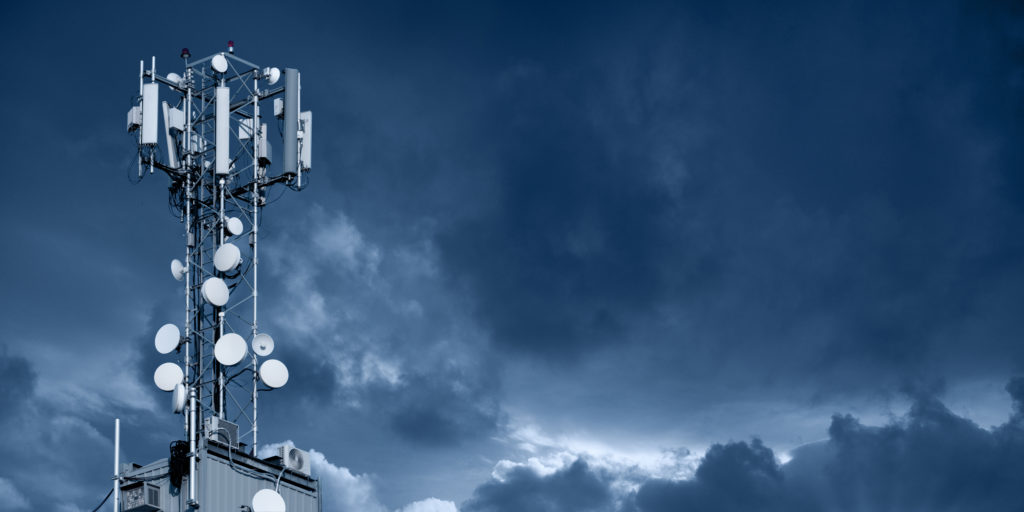Looking forward to faster speeds on your phone? It may end up causing your next flight to be delayed. With the rollout of 5G across the U.S., the aviation industry could see some major hiccups in the coming months.
AT&T and Verizon were set to begin operating a new C-Band spectrum 5G service on January 5, 2022, which has been a cause of concern for airlines. Major U.S. carriers have warned that this deployment could cost air travelers $1.6 billion annually in delays.
New 5G Wireless Service May Cause Flight Delays

The issue is that the new wireless signals may interfere with an aircraft’s radio altimeter, which is used to determine an aircraft’s precise height when flying at low altitudes. This could cause several flight delays, diversions, and cancellations due to aircraft not being able to land safely during storms and low-visibility conditions such as cloudy weather or smog.
Both AT&T and Verizon voluntarily agreed to delay the launch of commercial C-Band spectrum for one month back in November in order for the FAA to address concerns about potential interference.
In December, the FAA issued a new airworthiness directive prohibiting certain operations requiring radio altimeter data when in the presence of 5G C-Band interference. This means that aircraft may not be able to rely on radio altimeters at over 40 of the largest airports in the country.
Related: What Happens If You Don't Switch Your Phone to Airplane Mode When You Fly?
Airline Executives Warn About Disruptions Due to 5G
United CEO Scott Kirby told Reuters that this “Could delay, divert, or cancel about 4% of daily flights and impact hundreds of thousands of passengers.”
At a Senate hearing on December 15, 2021, Southwest Airlines CEO Gary Kelly said, “If you were to ask us what our number one concern is in the near term, it is the deployment of 5G.” He went on to say that “The FAA is uncomfortable with the safety risk and as a consequence, the impact on our operations to mitigate that would be a significant setback.”
Wireless Industry Defends 5G Technology
The Cellular Telecommunications Industry Association (CTIA) has accused the aviation industry of fear mongering. Chief Communications Officer Nick Ludlum tweeted, “We agree with the FAA and the FCC that we can and will have both safe flights and robust and reliable 5G service.”
In a filing to the FCC, the CTIA stated that “nearly 40 countries have already adopted rules and deployed hundreds of thousands of 5G base stations in the C-Band at similar frequencies and similar power levels—and in some instances, at closer proximity to aviation operations—than 5G will be in the U.S.” There haven't been any reports of harmful interference and U.S. airlines continue to fly safely in and out of these countries without disruptions related to C-Band 5G operations.
Boeing and Airbus Urge White House to Take Action
The two largest plane manufacturers have also chimed in by sending a letter to US Transportation Secretary Pete Buttigieg. In the joint letter, executives of Airbus and Boeing, Jeffrey Knittel and Dave Calhoun, said that the new technology could have “an enormous negative impact on the aviation industry.”
According to Reuters, the letter also mentioned an analysis from trade group Airlines for America that if the FAA’s airworthiness directive mentioned above would have been in effect in 2019, around 345,000 passenger flights and 5,400 cargo flights would have been delayed, diverted, or canceled.
On New Year’s Eve, Buttigieg and the head of the FAA sent a letter to AT&T and Verizon executives asking to delay the rollout of 5G services again for a period of “no more than two weeks beyond the currently scheduled deployment date of January 5.”
The government would then work to identify priority airports to have a buffer zone that would allow flights to continue to operate safely while the FAA completes its assessments. The goal being to deploy 5G C-Band at the priority airports on a rolling basis with all activated by the end of March as long as there aren’t any new safety concerns.
Related: 5 Smartphone Essentials You Should Never Travel Without
AT&T and Verizon Initially Decline FAA Request to Delay 5G Launch
On January 2, executives John Stankey and Hans Vestberg from AT&T and Verizon replied with a joint letter indicating that they intended to proceed with their 5G expansion. The two wireless carriers agreed to voluntarily alter the use of the C-Band spectrum for a six-month period, through July 5, 2022, to adopt similar restrictions that are currently in place in France.
“If U.S. airlines are permitted to operate flights every day in France, then the same operating conditions should allow them to do so in the United States,” the executives stated in the letter.
The wireless carriers have a lot invested in the 5G expansion. The New York Times reports that Verizon and AT&T paid more than $70 billion for access to the C-Band spectrum. This was after the Federal Communications Commission determined that the use of spectrum shouldn’t interfere with well-designed radio altimeters and approved the C-Band for wireless service in February 2020.
Wireless Companies Agree to Two-Week Delay at the Final Hour

Late on January 3, 2022, AT&T and Verizon agreed to delay the launch of their 5G service for the two-week period requested by Buttigieg and the FAA.
The companies will now deploy the new 5G C-Band on January 19. During the next two weeks, the FAA, airlines, and wireless carriers will assess different ways to minimize how potential interference could impact flights.
“We know aviation safety and 5G can co-exist and we are confident further collaboration and technical assessment will allay any issues,” AT&T told Reuters.
Related: The 15 Most Exciting New Airline Routes for 2022
Air Travel and 5G Can Coexist Safely
Air travel is one of the safest forms of transportation and the regulating authorities will continue to uphold these standards. In the near term, there are likely to be additional flight disruptions piled on to the recent trouble airlines have been having with flight cancellations due to the pandemic.
While the details of how airlines and wireless companies will be regulated in the U.S. are still being hashed out by the FAA and FCC, the fact that the new 5G technology has been deployed in nearly 40 other countries around the world shows that there is room for both safe flights and 5G wireless service.






